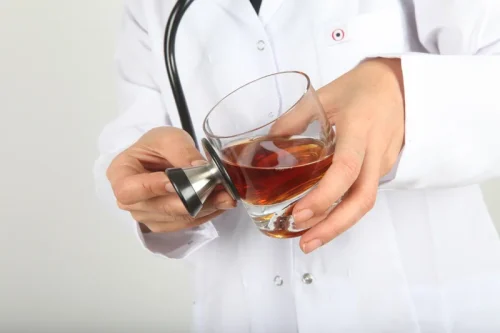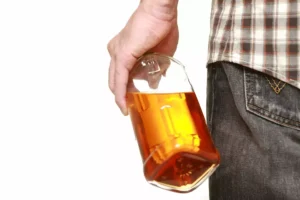Alcoholic Neuropathy: Causes, Symptoms, & Treatments

In an animal model, Kaur et al. (2017) showed that curcumin and sildenafil administrated alone or in combination represent a therapeutic advantage in alcohol-induced neuropathic pain [176]. The nerves that run outside of the spinal cord and brain are called peripheral nerves. They work to send signals throughout the central nervous system alcohol neuropathy and the rest of the body. Nerves help you to move (motor nerves) and feel physical sensations (sensory nerves). Some of your bodily functions are autonomic, which means that you don’t directly control them. Nerves that are part of the autonomic nervous system help to regulate heart rate, body temperature, respiration, and blood pressure.
Manage underlying conditions
We found more potent effects with tocotrienol as compared with α-tocopherol [55]. Alcohol abuse contributes to peripheral neuropathy development involving both somatic and autonomic nerves [154, 155]. However, impairments of autonomic functions are scarcer and less intensified, and, usually, clinical symptoms are delayed [156]. According to many studies, alcohol-induced autonomic neuropathy (AAN) not only leads to potential damage to internal organs but also increases the mortality rate of patients [157, 158]. It was observed that abstinence may lead to the regression of several symptoms of AAN [159]. It is important to stop drinking if you suffer from alcoholic polyneuropathy in order to stop the disease from getting worse and to correct the nutritional imbalance that is damaging the nerves and interfering with the nervous system.

Alcoholic neuropathy
These symptoms can occur in addition to the symptoms of alcohol withdrawal. But according to the Centers for Disease Control and Prevention (CDC), drinking less or not at all may help you avoid neurological harm. Consuming too much, especially over months or years, can result in severe symptoms. Physical therapy and orthopedic appliances (such as splints) may be needed to maintain muscle function and limb position.
The role of oxidative stress
A doctor may diagnose a person with alcoholic neuropathy, if alcohol use has damaged the peripheral nerves. People who drink heavily on a regular basis are at risk of developing this condition. However, it is known to be directly related to heavy and long-term alcohol consumption.
- This biobank is a set of patient data and samples intended for research use.
- However, be sure to consult with your doctor prior to participating in a new treatment method.
- A medical detox program followed by a comprehensive alcohol rehab program can manage alcoholism and help a person to get sober and stay that way.
- Alcohol-related neurologic disease refers to a range of conditions caused by alcohol intake that affect the nerves and nervous system.
- The exact mechanism behind alcoholic neuropathy is not well understood, but several explanations have been proposed.
- Chronic alcoholism can alter the intake, absorption and utilization of various nutrients (nicotinic acid, vitamin B2, vitamin B6, vitamin B12, folate or vitamin E).
Someone who struggles with alcoholism may replace meals with alcohol, take in a lot of empty calories, and not maintain a healthy and balanced diet. Alcohol can also deplete the body of essential nutrients, and thiamine (vitamin B1) deficiency is common in people who battle alcoholism. Malnutrition due to alcoholism can contribute to nerve damage and alcoholic polyneuropathy as well. The US National Library of Medicine (NLM) warns that around 50 percent of long-term heavy drinkers will suffer from alcoholic neuropathy. Ethanol and its toxic metabolites affect neural metabolism including metabolic activities in the nucleus, lysosomes, peroxisomes, endoplasmic reticulum, and cytoplasm [104]. The morphological basis of post-alcoholic damage of neural tissue includes primary axonopathy and secondary demyelination of motor and sensory (especially small) fibers [105].
Alcoholic Neuropathy

PKC is involved in receptor desensitization, modulating membrane structure events, regulating transcription, mediating immune responses, regulating cell growth and in learning and memory. These functions are achieved by PKC mediated phosphorylation of other proteins [16]. Apart from above function, over-activation of epsilon form of protein kinase C (PKCε) is known to be involved in mediating neuropathic pain, such as pain induced by cancer chemotherapy (vincristine) [56] and diabetes [57]. PKC and protein kinase A (PKA) are both known to be important in nociceptor function [57–59]. There are several studies suggesting the involvement of protein kinases in alcoholic neuropathy. Dina et al. [16] maintained rats on a diet to simulate chronic alcohol consumption in humans and found mechanical hyperalgesia by the fourth week which was maximal at 10 weeks.
Primarily, thiamine deficiency is the crucial risk factor of ALN since it induces the progression of Korsakoff’s syndrome and beriberi [144, 145]. Due to similar histologic and electrophysiological symptoms, it was believed that ALN may make up a subtype of beriberi [146]. Further research has confirmed the role of thiamine in the pathogenesis of ALN—the well-balanced diet and vitamin B1 supplementation significantly decreased the severity of ALN symptoms [147, 148].
How do doctors diagnose alcoholic neuropathy?
Several treatment options and interventions can help a person recover from alcohol dependence. Once a person stops using alcohol, they can often experience recovery from symptoms, though in some cases, some damage may be permanent. The alcohol will continue to circulate in the bloodstream and eventually affect other organs. Keep reading to learn about the different types of alcohol-related neurologic disease and its signs and symptoms.
How is alcohol-related neurologic disease treated?
A doctor may suggest an inpatient detox when a person’s alcohol use disorder is very severe. They may also recommend other options, such as medications for alcohol reduction or cessation maintenance, support groups, and psychotherapy. When speaking with a doctor, a person should be honest about how much alcohol they consume. There are several possible causes of neuropathy, and knowing about a person’s alcohol intake can help the doctor to make an accurate diagnosis. Symptoms can include numbness in hands and feet, digestive issues, and loss of balance due to loss of nerve function.


Persons with alcoholism may consume smaller amounts of essential nutrients and vitamins and/or exhibit impaired gastrointestinal absorption of these nutrients secondary to the direct effects of alcohol. Alcoholic neuropathy is nerve damage that results from the toxic effect of alcohol on nerves. Alcohol-induced peripheral neuropathy is a common complication of alcohol use disorder.Excess alcohol consumption can also result in malnutrition and vitamin deficiencies that have a damaging effect on nerves. Treatment of ALN aims to reduce further damage to the peripheral nerves and restore their normal functioning. What is crucial during ALN treatment is the alleviation of the major causation of ALN which is alcohol abuse.
